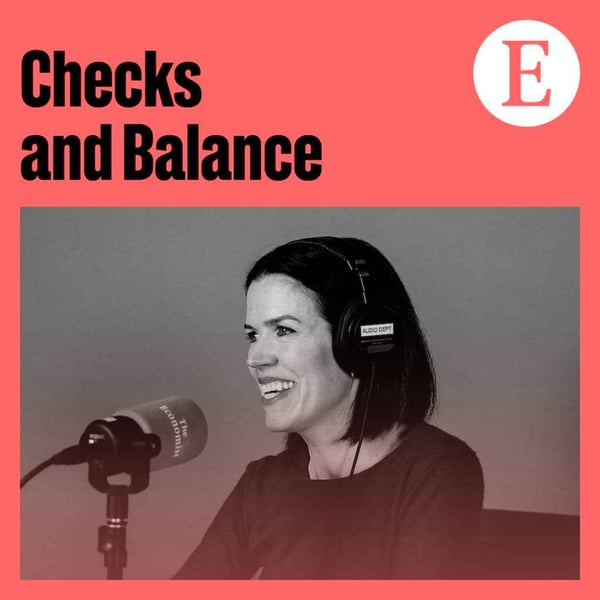Checks and Balance: Merit where it’s due
Checks and Balance from The Economist
The Economist
4.6 • 1.7K Ratings
🗓️ 4 June 2021
⏱️ 42 minutes
🧾️ Download transcript
Summary
The belief that people should advance according to their abilities rather than family pedigree is one of history’s most revolutionary ideas. But the meritocratic ideal that has inspired Americans since Thomas Jefferson has lost its lustre. Social mobility has stalled and critics on both right and left see a country captured by self-serving elites. Can America’s meritocracy be mended?
John Prideaux, US editor, hosts with Adrian Wooldridge, The Economist’s political editor and author of “The Aristocracy of Talent”, US policy correspondent Tamara Gilkes Borr and Jon Fasman, US digital editor.
For full access to The Economist’s print, digital and audio editions, subscribe at economist.com/USpod
Hosted on Acast. See acast.com/privacy for more information.
Transcript
Click on a timestamp to play from that location
| 0:00.0 | When the future 10th Earl of Weems attended his interview for admission to Christchurch |
| 0:06.3 | College Oxford in 1837, he was asked just one question, |
| 0:11.4 | how's your father? The American elite likes to think it does things differently. |
| 0:16.5 | Instead of family pedigrees, marriage announcements in the New York Times |
| 0:19.7 | list universities attended and degrees earned. These academic badges of honour are held up as |
| 0:25.8 | proof of the idea that anyone can make it so long as they have the right qualities. |
| 0:30.5 | Ronald Reagan said that all Americans have the right to go just as far as their dreams |
| 0:35.1 | and individual hard work will take them. This formula has been echoed by every |
| 0:39.8 | president since, including Barack Obama, Donald Trump and now Joe Biden. |
| 0:44.7 | But though the rhetoric of the American dream has stayed the same, the odds of realising it |
| 0:48.8 | have not. Biden and Trump were both born in the 1940s. The median child of that generation |
| 0:54.9 | had a 93% chance of earning more than their parents had. |
| 1:00.1 | By the time Obama was born, a boomer of the 1960s, that probability had already shrunk to 60%. |
| 1:07.1 | But a child born in the full optimism of the Reagan years, the 1980s, would have less than a 50-50 shot |
| 1:12.8 | of that goal. This is checks and balance. |
| 1:16.0 | I'm John Prado, the economist's US editor. Each week we take one big dean shaping American politics |
| 1:26.5 | and explore it in depth. Today is America a Maritokrasu. |
| 1:35.9 | The belief that people should advance according to their talents rather than birth or connections |
| 1:50.7 | is one of history's most revolutionary ideas. But the ideal that has inspired Americans since |
| 1:56.0 | Thomas Jefferson has lost its lustre. Social mobility has stalled. |
| 2:01.0 | Belief in the American dream has faltered, and populists on the right and the left see a country |
| 2:06.0 | captured by self-serving elites. Can America's Maritokrasu be mended? |
... |
Please login to see the full transcript.
Disclaimer: The podcast and artwork embedded on this page are from The Economist, and are the property of its owner and not affiliated with or endorsed by Tapesearch.
Generated transcripts are the property of The Economist and are distributed freely under the Fair Use doctrine. Transcripts generated by Tapesearch are not guaranteed to be accurate.
Copyright © Tapesearch 2025.

